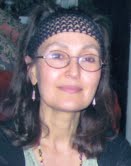
So You Think You Know? (Part 1)
Selma Gokcen
“We think we know what we do, but all our efforts show that unless our sensory appreciation is reliable, this belief is a delusion.” – F.M. Alexander
Musicians, like athletes and dancers, work on the basis of muscle memory. Our conventional teaching has taught us to play by “feel,” as well as by using the ear, by sensing how far, how near, how long, how short, how much force or weight, how slowly or quickly—the endless subtle variations of these directions we are called upon to make as we move. We rely on this “sense of where and how things are” not just at the cello but in everyday life.
Through constant repetition, the conduits are formed for nerve impulses to activate muscle. In this process our kinaesthetic sense is supposed to be our ally. I say “supposed to be” because therein lies the trap. Our ally can trump us, not just once but over and over again. Our kinaesthetic sense1 has no means of internal self-regulation or verification. Pain is the only red-alert we have, but long before that alert goes off, our sensory awareness can tolerate quite a bit of wrong-doing whilst leaving us in the dark about it.
How is it that we can go so far off the track and worse yet, never know? How do we set out with the idea to head north and end up south? Why does this internal compass fail us?
Our kinaesthetic sense is conditioned by whatever movements –with their accompanying degree of tension—that we have practiced, for better or worse. My Alexander teacher described this conditioning as “the force of habit,” stressing the word “force.” “We have no idea what we are up against,” he used to say. In the first months of my teacher training, nor did I. With my teacher guiding the movement, I thought I understood how I was going wrong during the simple act of sitting down or standing up, and assumed that I could avoid this wrong thing. Over and over again, I was proven wrong, powerless to stop habits set in motion instantaneously and beyond my control. Eventually I was brought to the point of desperation, a place not uncommon to those training in the Alexander Technique. I did not know that, as in the practice of Zen Buddhism, you have to empty your “cup of knowledge,” smash it, and start from nothing, acknowledging that your sensory awareness cannot be depended upon. What a huge admission, and a humbling one!
Now what? If you don’t know and cannot know…now what?
Alexander was brought to the same place of not knowing which he describes in his book Use of the Self, in the first chapter called “Evolution of a Technique.” The fact that his sensory awareness, the very instrument by which one knows and encounters the world, was not to be trusted was a staggering discovery. And the journey he made to re-educate himself, full of pitfalls and deception, is a truly heroic account of a man determined to understand the force of habit and how the mind functions before and during activity. In the next installment, we will explore how this recovery of reliable sensory awareness can take place for musicians.
1Kinaesthesia is derived from two Greek words, one of which means movement, and the other sensation, and a fair and full definition would be “Sensory appreciation of output of neuro-muscular energy in movement.” – Peter Macdonald
Subjects: Playing Healthy
